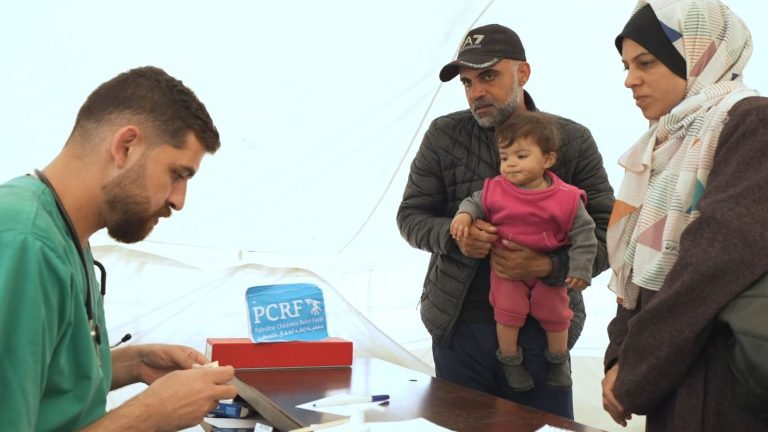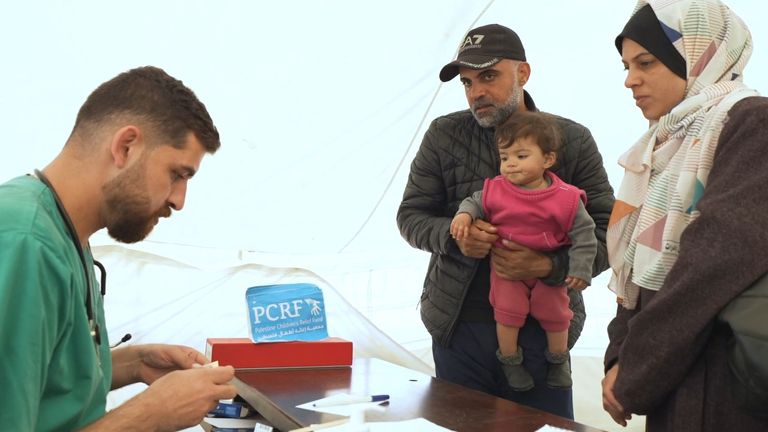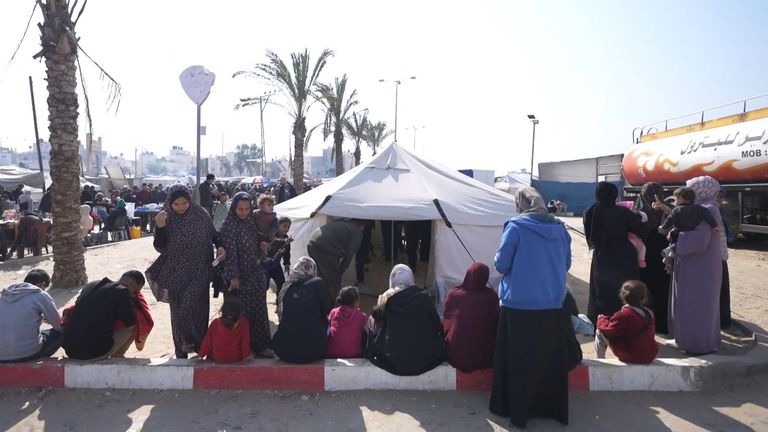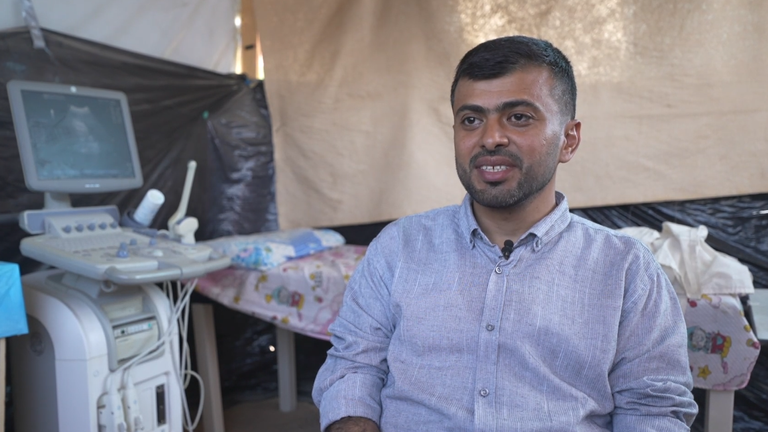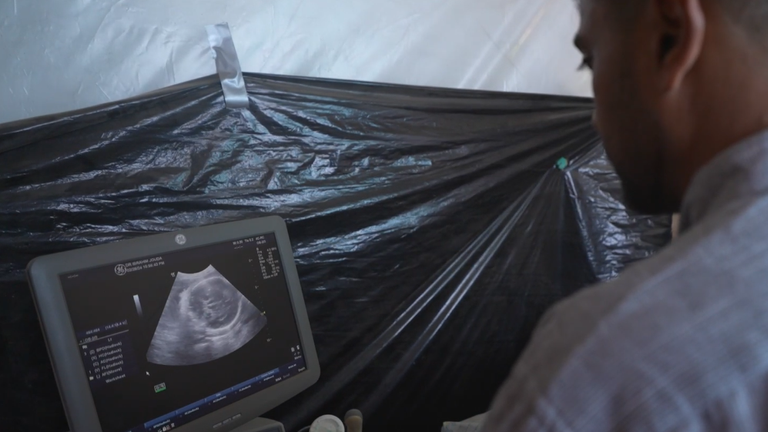Doctors in Gaza told Sky News that the situation is “catastrophic”, and the disease is spreading in refugee camps, especially among children.
Many hospitals in Gaza Now, it is either closed or on the verge of collapse, with doctors setting up treatment tents in the streets, with what few supplies they can get.
Latest updates in the Middle East
Dr. Raja Okasha is a pediatrician from northern Gaza. The fighting forced him to leave his home and move south to Rafah.
Professional dedication to medicine and a sense of duty to his fellow Gazans is what keeps him going. His surgery is now in a tent – a street clinic in a refugee camp.
Dr. Okasha told Sky News: “I decided to open this medical tent to provide them with medicines and treatment for free, especially since the health system in Gaza now lacks hospitals and health centers.”
“The situation in the camp is almost catastrophic. The food is unclean, people drink salt water because there is no fresh water, and viruses and bacteria are alarmingly widespread among children due to their weak immunity.
“There are epidemics like hepatitis A. The situation is very bad here in this camp.”
More than 20,000 children have been born in Gaza since the start of the war.
Dr. Okasha said: “The most difficult cases I treat are respiratory problems. Oxygen is important for children, and respiratory problems are widespread among children, especially newborns, three months old and less than one month old.”
“We receive children who are unable to breathe. Such cases require hospitalization [but] Unfortunately, the hospitals here are full.
“In the only children’s hospital in Gaza, there are three to four children in each bed. Now the children sleep on the floor, so the most difficult cases are respiratory problems and chest infections among children under three months old.
The drug should be rationed for patients who need it most. Hospitalization is only an option for the most urgent cases. There has been a significant increase in postpartum depression among new mothers.
Dr. Muhammad Al-Raqib, a young gynecologist from Khan Yunis, sees between 50 and 70 pregnant women in his tent every day.
“The cases that I need to transport, such as cases of severe bleeding, or cases where their lives are threatened due to or due to illness, then I take over primary care and transport them by ambulance.
“They suffer a lot, you know, their conditions are not suitable for them during pregnancy or after birth. They need good clean water available all the time. They need clean bathrooms, and those things are not available. That's why a lot of people suffer from urinary tract infections, pneumonia and illnesses.” “dermatological.”
Read more:
Exclusive: The company that makes millions from Gaza's misery
Hamas tells Sky News that Biden’s hopes for a ceasefire are “wishful thinking”
Biden is facing backlash from voters over policy toward Israel
Dr. Al-Raqib added: “They come in harsh or bad conditions. In many cases, they die because they do not receive proper care during their pregnancy, and that is why their condition deteriorates. Sometimes they lose their wombs.”
“You know, they might say that Gaza is a place of death, but for me, I know that Gaza is a place of life. Gaza will never lose hope. And the tent[الطبية]It is just one place to spread hope and optimism. “Just spread smiles to spread health.”[medical[tentisjustoneplacetospreadhopeandjustspreadthesmiletospreadhealth”[medical[tentisjustoneplacetospreadhopeandjustspreadthesmiletospreadhealth”
Had it not been for the dedication of doctors in Gaza, the death toll would undoubtedly have been much higher. They are fighting their own war: a war for medicine, clean water and space to work safely. The line between life and death in Gaza is very thin.

